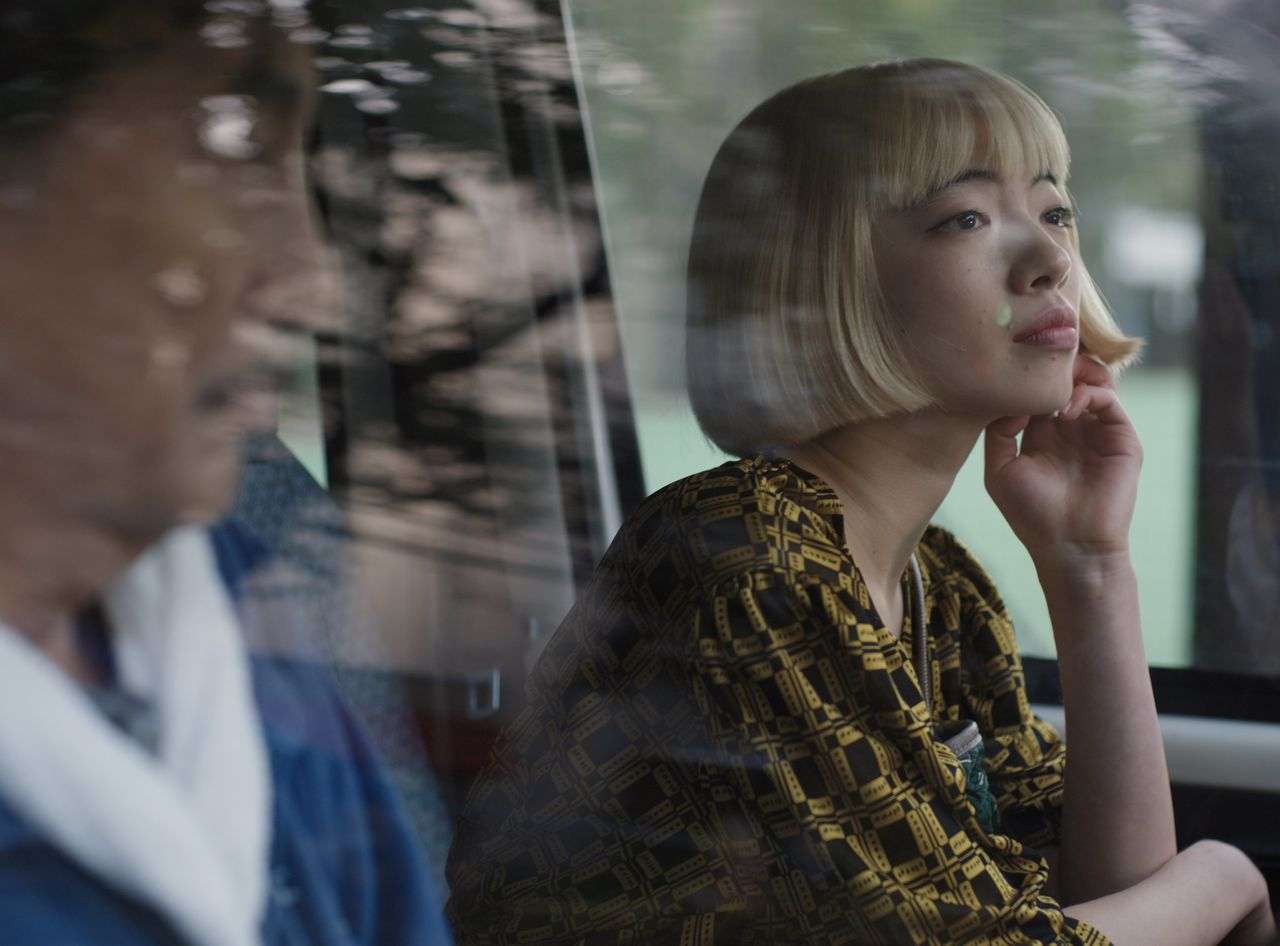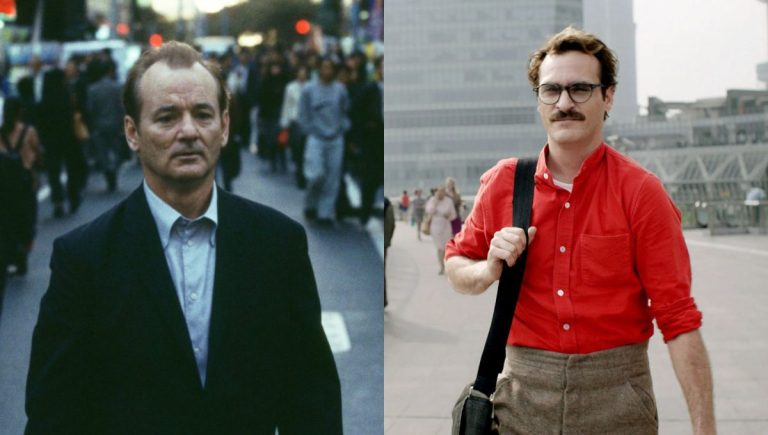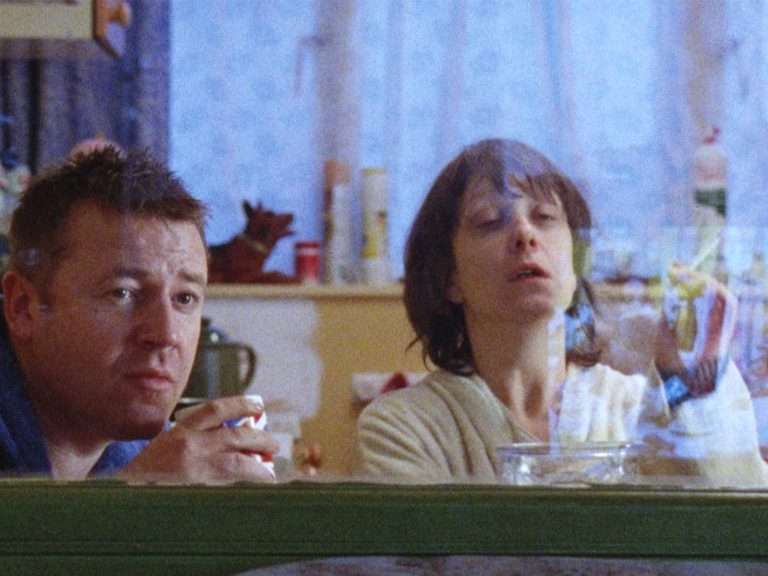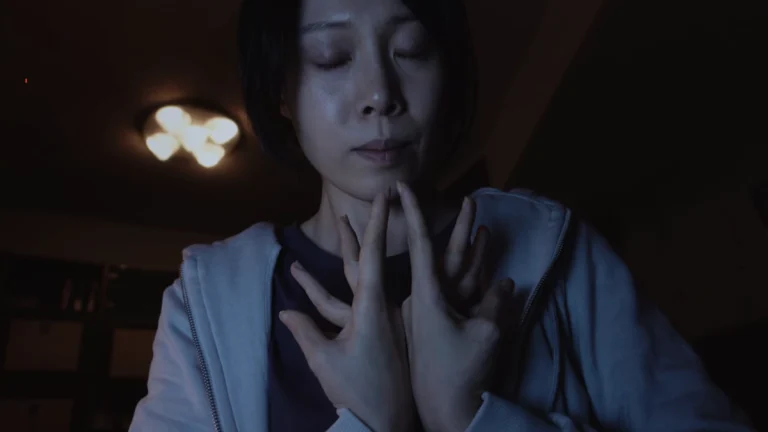In Yasujirō Ozu’s 1953 masterpiece “Tokyo Story,” the old couple Shūkichi Hirayama (Chishū Ryū) and Tomi (Chieko Higashiyama) embark on a journey to reconnect with their children, only to be made to feel like a hovering inconvenience in the lives of their kin. A deliberate, meticulous sense of minimalism pervades Ozu’s gaze, and the director lingers on non-human mundanities to underline the growing gulf between the two generations, exacerbated in the aftermath of war and an economy driven by hyper-materialism. Ozu’s film mourns the loss of an era that thrived on traditional notions of close-knit families and hones in on the ins and outs of working-class existence — the latter classifying “Tokyo Story” as hōshimin-eiga, a category of Japanese realist films revolving around proletarian life.
Ozu’s ingenuity in capturing humanity — be it the use of stagnant cameras or atypical transitions bursting with non-diegetic music — has influenced generations of filmmakers. Among them, Wim Wenders emerges as someone deeply touched by Ozu’s cinematic philosophies, which he pays homage to in his “Tokyo-Ga,” a fervent search to recapture a snapshot of Ozu’s vision in 1980s Tokyo. The spirit of Ozu’s artistic vision, however, feels most intensely distilled in Wenders’ “Perfect Days” — a culmination of the Japanese filmmaker’s humanistic gaze, infused with Wenders’ love for the minutiae of human existence, where every person is a universe.
Wenders’ Hirayama (Kōji Yakusho) might seem like an unlikely counterpart to Ozu’s, but the similarities between the characters are lovingly deliberate, as affirmed by Wenders himself. The differences boil down to Wenders’ love for characters who silently observe and soak in the fabric of thrumming humanity, which spills over in quiet bylanes, bustling streets, or the picturesque vistas of the open road. His (often overlooked) “The Road Trilogy” embraces this sentiment with charming frankness, where these wandering souls venture on the road in search of something elusive: the unstated nature of simplicity, the shimmering value of mindful silences, and the organic lull of connections that bloom as easily as they wither. While these emotions remain elusive and precious due to their elusiveness in most Wenders films, Hirayama’s meticulous, deliberate routine in “Perfect Days” transforms his solitude into a cocoon of satisfaction, where being present takes precedence over every other emotion.
It is easy to misinterpret Hirayama’s contentment with his existence — a never-ending cycle of cleaning toilets for a living, listening to classic rock and pop cassettes, reading works of art, and basking in nature — as a façade, as the breaking of his emotional dam reveals deep-seated trauma that is never articulated. Some critiques of Wenders’ gaze have accused it as fetishistic, where the painful mundanities of a working-class man have been romanticized with the naïve, out-of-touch shunning of cynicism. These interpretations, while holding merit, indulge in a fundamental misunderstanding of Wenders’ intent with “Perfect Days:” the cynicism surrounding objectively mundane menial work is a class-based societal projection that neither Wenders nor Hirayama prescribes to, and the agonies (which might or might not stem from it) is embraced in all their bittersweetness without any pretensions.
To understand this mindful approach to now, which Hirayama also instills in his niece during a bike ride, let us dive deeper into Japanese Zen Buddhism, which often uses za-zen (坐禅), a sitting meditation that underlines the wisdom in simplicity and the non-judgemental acceptance of others, to craft personhood that luxuriates in stillness. Although Hirayama does not practice za-zen, or talk about adhering to this way of living, he channels this philosophy with his non-discriminatory appreciation of those around him (including a homeless man, whom he observes with kind fascination), and proclivity towards remaining quiet unless it is absolutely imperative to speak. In the few interactions that we observe Hirayami participate in, there is a simultaneous negation of the self sparked by compassion and a self-affirming appreciation of the sensory mundane that most of us take for granted.
When engaging with another, such as the terminally ill individual, towards the end, Hirayama makes the conscious choice to forge a connection — albeit temporary — and extends his isolated self to offer comfort to a dying man. The perpetual retraction into his solitary self is also deliberate, as it provides him the luxury to absorb the interplay of light between the leaves during a snack break or immerse himself in literary worlds under the dim shine of a cobbled-together night lamp. The arrival of his estranged sister shatters this equilibrium, this lovingly designed routine that nourishes and sustains him, and we get a glimpse of the life he left behind. Although we are left to guess his past, it is clear that it brims with pain, which inevitably spills over to the present, something that Hirayama wishes to clasp onto on its own merits.
Wenders does not wish to banish the uncomfortable feelings that bubble in anyone with a heart or use nature, art, and solitude as vehicles of escapism to the detriment of the self. If anything, Wenders is a passionate proponent of the expansive spectrum of the human experience — a sentiment acutely felt in his “Wings of Desire,” where melancholic angels gaze upon the ordinary with yearning, desperate to touch the mundanities of a city that feel so sensuous to someone who has never known what it is like to be human.
One of the angels, Damiel (Bruno Ganz), transitions to becoming a human after falling in love, not just with a person but with humanity itself, eager to indulge in everyday tasks we do not even stop to think about. This is not an idyllic world, no: the streets of Berlin show signs of division, and almost every human the angels observe is tinged with loss of some sort. Despite the heartbreak, there’s immense value in poring over an engaging book in the peaceful humdrum of a library or idly slurping on an ice lolly on a hot summer day.
With Hirayama, this intense yearning for the mundane is evened out as a tangible intent that he fulfills day in and out, and even when he breaks down due to a reminder of inevitable pain, he languishes in the bittersweet, giving into the complex emotions that will forever define us. When not rooted in the present or playing tic-tac-toe with a kindred spirit as a part of an unstated rendezvous, Hirayama dreams, his vision tinted monochrome, which is similar to the angels’ view of humanity in “Wings of Desire,” where they perceive the world with the desire to be a part of it. Hirayama also yearns through his photography, which he dutifully tears up or chooses to preserve, content with the creation of art that does not require external validation to amount to something.
Like Hirayama, “Perfect Days” does not feel the need to define every little thing, as its simplistic abstractions are profound enough to gently nudge us towards the quiet luxury of the now, which is often lost in the rat races and the fresh hells. To be nourished by the everyday and be content with these nourishments feels like a monochrome dream, too surreal to be within reach. With “Perfect Days,” the gulf minimizes, if only for a perfect moment.









